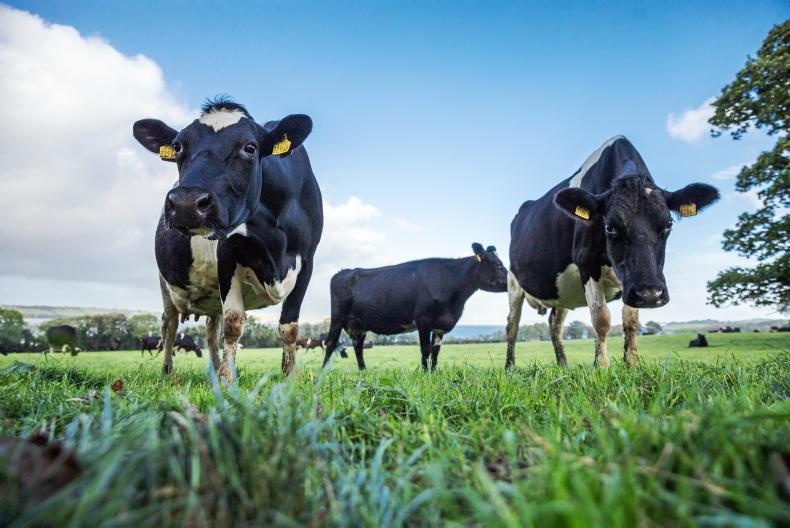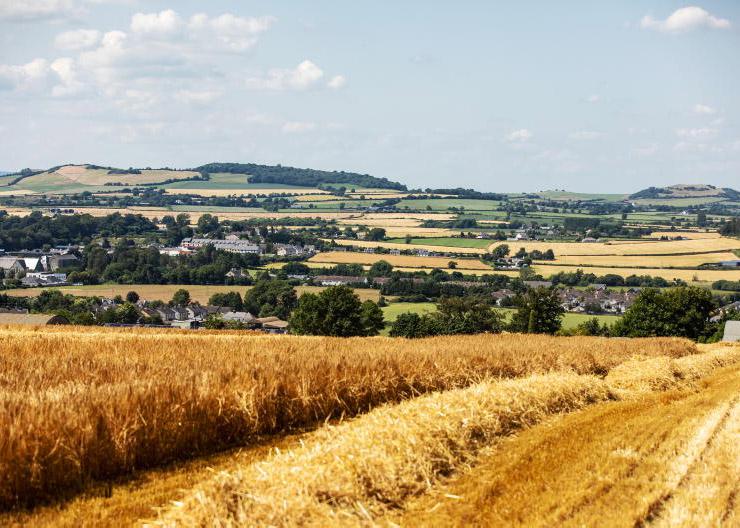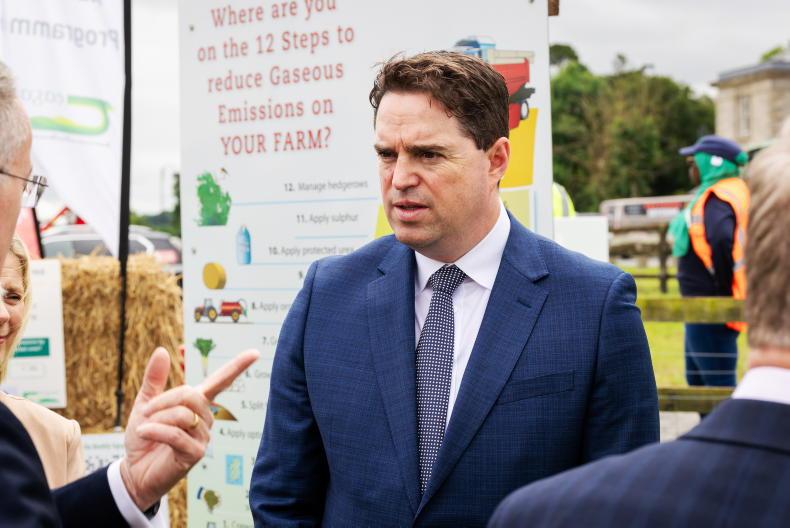The Russian invasion of Ukraine has brought food and nutrition security close to the top of the international political agenda. Over the past 50 years, food has only occasionally been high on that agenda: in the early 1970s, in 2007/8 (the food-price crisis), and in 2011. In each case, high food prices led to political unrest, food riots and, in 2011, the Arab spring and the overthrow of governments in North Africa and the Middle East.
Each of these cases was caused by a combination of supply and demand factors: their price peaks declined fairly rapidly in response to production increases and the modulating effect of international trade.
The Ukrainian crisis is more complex in that it has resulted in sharp increases in the price of food, energy and fertiliser, contributing to global inflation.
We do not know how long the conflict will last and what its final outcome will be, but it is not a matter of the market mechanisms and trade bringing the global food situation back to a “new normality”. The resolution of this crisis will require a geopolitical solution which could take a considerable time.
Potential impacts
We can, however, begin to discern short- and longer-term consequences arising from the crisis.
In the short term, the number of people suffering from hunger and severe food insecurity has soared, particularly in African countries already affected by conflict and climate change.
A major international humanitarian response will be required over the coming year if significant loss of life is to be avoided.
In the medium term, two consequences seem likely.
First, countries heavily dependent on food imports from Russia and Ukraine – such as a number of North African and Middle Eastern countries – will seek to reduce that dependence through diversification of their trade. Second, more countries and regions will give higher priority to meeting more of their own food needs and deliver on their food and nutrition security. Both of these objectives will require consistent and sustained government commitment and will take time.
In any event, these likely consequences of the Ukrainian crisis have only accentuated trends already under way.
In September 2019, the UN secretary general, Antonio Guterres called for a Food Systems Summit, which was held in September 2021. In doing so, he recognised that the achievement of “sustainable food systems” is critical if the targets in the two 2015 landmark international agreements, the Sustainable Development Goals (SDGs) and the Paris Climate Agreement, are to be met.
Other factors
The COVID-19 pandemic brought a major shock to global health and the world economy. It also had implications for food systems, highlighting the need to build greater resilience into existing and future supply chains.
This rapidly changing international context shapes the options and opportunities for the Irish agri-food sector. Key additional shaping factors will be the implementation of EU policy (CAP reform, the European Green Deal/Farm to Fork) and the trading arrangements with the UK when the Northern Ireland Protocol issue is resolved.
Good position
Ireland is in a good position to capitalise on a number of the EU and international developments outlined above. Food Vision 2030, the fifth stakeholder-led agri-food strategy since 2000 which was adopted by the Government in August 2021, set as its core objective that Ireland should become an international leader in sustainable food systems over the coming decade.
The new context suggests that Food Vision’s implementation should centre around four interlinking objectives if Ireland is to make its optimum contribution to global food and nutrition security.
Implementation of Food Vision 2030
Keeping food and nutrition security as a high international priority. Partnering with a number of countries in their national pathways for sustainable food systems.Moving to the next generation of Irish exports in agri-food services and technologies.
1 Implementation of
Food Vision 2030
With Food Vision 2030, Ireland is one of a small number of countries to have a national agri-food strategy developed using a “food systems approach”.
Its implementation is under way, with Minister McConalogue chairing a committee monitoring the progress being delivered against the commitments made.
Two specific areas require political leadership and a willingness to compromise if the ambitious goals set down in Food Vision 2030 are to be met. These are in the agri-environment and in the link between nutrition and health.
The negotiations on the sectoral carbon budgets as part of the Climate Action Plan should hopefully see agreement on the key issue of emissions targets for the agri-sector.
Recognising the link between food and nutrition and the relationship between diet and health was an important innovation in Food Vision 2030.
The COVID-19 pandemic has, understandably, limited the progress made in advancing the food, nutrition and health agenda proposed in Food Vision but it is now imperative that initiatives are taken, at political and official level, to give effect to the recommendations in the strategy.
If Ireland is to realise the ambition of being an international leader in sustainable food systems, effective and evidence-based implementation of Food Vision 2030 is of critical importance, particularly for the realisation of the other three objectives.
2 Keeping food and nutrition security as an international priority
It is in Ireland’s strategic interest that food and nutrition remain high on the international agenda. It is not a given that this will happen as inflation, cost of living, climate change and geopolitical changes will compete for attention.
But Ireland has a strong case for making its viewpoint heard. In the important 2021 meetings – the Food Systems Summit in September and the Nutrition for Growth Summit in December – Ireland played an important role in shaping their agendas and outcomes.
In looking to the future, Ireland’s central narrative should be that the international community should prioritise food and nutrition security, linked to a reduction in conflict and greater efforts to deal with climate change.
This central narrative should shape Ireland’s input to this debate, both at EU level and internationally.
The EU has further decisions to make on how greater focus on food and nutrition security should translate into domestic EU policy.
Internationally, opportunities for a forceful Irish contribution exist during Ireland’s remaining period as a member of the UN Security Council (until the end of 2022).
These include the OECD meeting of Agriculture Ministers and the COP 27 meeting later this year, and the UN Review meeting of the Food Systems Summit in December 2023.
Moving down a notch from this high political level, but complementary to it, Ireland should aim to be a thought and policy leader on issues central to its national interest. For example, the role of livestock in farming systems and the nutritional importance of animal-sourced foods in a healthy diet.
3 Partnering with countries on their path to sustainable food systems
Over 100 countries committed to developing “national pathways for food system transformation” at the Food Systems Summit.
Many of these countries are at an early stage in this journey and will need assistance. Ireland’s experience since 2000 of developing national stakeholder-led agri-food strategy can be highly relevant.
The Department of Foreign Affairs/Irish Aid and the Department of Agriculture, Food and the Marine are collaborating to identify a limited number of African countries with whom Ireland can partner in this national pathways journey.
Reporting progress on this initiative should be the basis for Ireland’s contribution to the UN Food Systems Summit Review meeting in December 2023.
4 Agri-food services and technologies – the next generation of exports
Over the past 30 years, Ireland has transitioned from being an exporter of commodity products to being a sophisticated food sector, exporting safe and high-quality food to 180 countries.
If Ireland can deliver on its commitment to being a leader in sustainable food systems, this will open up new opportunities for a new generation of exports in agri-food services and technologies.
A relevant analogy is how Denmark became a leader in renewable energy technologies post the oil crisis in the early 1970s. That strategic decision has delivered long-term economic benefits for Denmark.
A similar opportunity appears to be opening for Ireland for the services and technology to deliver on sustainable food systems. Let us hope we can take it.

Tom Arnold.
* Tom Arnold was chair of the 2030 agri-food strategy committee. He is the Irish Government’s Special Envoy for Food Systems.
The geopolitical circumstances around the current food security concerns seem likely to keep it much higher on the global political agenda for much longer than previous incidences.There are many short- and longer-term issues associated with the war, especially for many African countries. Higher food prices will mean that very many more millions of people will go hungry.Ireland needs to follow the objectives set out in Food Vision 2030 to optimise its contribution to global food and nutrition security.
The Russian invasion of Ukraine has brought food and nutrition security close to the top of the international political agenda. Over the past 50 years, food has only occasionally been high on that agenda: in the early 1970s, in 2007/8 (the food-price crisis), and in 2011. In each case, high food prices led to political unrest, food riots and, in 2011, the Arab spring and the overthrow of governments in North Africa and the Middle East.
Each of these cases was caused by a combination of supply and demand factors: their price peaks declined fairly rapidly in response to production increases and the modulating effect of international trade.
The Ukrainian crisis is more complex in that it has resulted in sharp increases in the price of food, energy and fertiliser, contributing to global inflation.
We do not know how long the conflict will last and what its final outcome will be, but it is not a matter of the market mechanisms and trade bringing the global food situation back to a “new normality”. The resolution of this crisis will require a geopolitical solution which could take a considerable time.
Potential impacts
We can, however, begin to discern short- and longer-term consequences arising from the crisis.
In the short term, the number of people suffering from hunger and severe food insecurity has soared, particularly in African countries already affected by conflict and climate change.
A major international humanitarian response will be required over the coming year if significant loss of life is to be avoided.
In the medium term, two consequences seem likely.
First, countries heavily dependent on food imports from Russia and Ukraine – such as a number of North African and Middle Eastern countries – will seek to reduce that dependence through diversification of their trade. Second, more countries and regions will give higher priority to meeting more of their own food needs and deliver on their food and nutrition security. Both of these objectives will require consistent and sustained government commitment and will take time.
In any event, these likely consequences of the Ukrainian crisis have only accentuated trends already under way.
In September 2019, the UN secretary general, Antonio Guterres called for a Food Systems Summit, which was held in September 2021. In doing so, he recognised that the achievement of “sustainable food systems” is critical if the targets in the two 2015 landmark international agreements, the Sustainable Development Goals (SDGs) and the Paris Climate Agreement, are to be met.
Other factors
The COVID-19 pandemic brought a major shock to global health and the world economy. It also had implications for food systems, highlighting the need to build greater resilience into existing and future supply chains.
This rapidly changing international context shapes the options and opportunities for the Irish agri-food sector. Key additional shaping factors will be the implementation of EU policy (CAP reform, the European Green Deal/Farm to Fork) and the trading arrangements with the UK when the Northern Ireland Protocol issue is resolved.
Good position
Ireland is in a good position to capitalise on a number of the EU and international developments outlined above. Food Vision 2030, the fifth stakeholder-led agri-food strategy since 2000 which was adopted by the Government in August 2021, set as its core objective that Ireland should become an international leader in sustainable food systems over the coming decade.
The new context suggests that Food Vision’s implementation should centre around four interlinking objectives if Ireland is to make its optimum contribution to global food and nutrition security.
Implementation of Food Vision 2030
Keeping food and nutrition security as a high international priority. Partnering with a number of countries in their national pathways for sustainable food systems.Moving to the next generation of Irish exports in agri-food services and technologies.
1 Implementation of
Food Vision 2030
With Food Vision 2030, Ireland is one of a small number of countries to have a national agri-food strategy developed using a “food systems approach”.
Its implementation is under way, with Minister McConalogue chairing a committee monitoring the progress being delivered against the commitments made.
Two specific areas require political leadership and a willingness to compromise if the ambitious goals set down in Food Vision 2030 are to be met. These are in the agri-environment and in the link between nutrition and health.
The negotiations on the sectoral carbon budgets as part of the Climate Action Plan should hopefully see agreement on the key issue of emissions targets for the agri-sector.
Recognising the link between food and nutrition and the relationship between diet and health was an important innovation in Food Vision 2030.
The COVID-19 pandemic has, understandably, limited the progress made in advancing the food, nutrition and health agenda proposed in Food Vision but it is now imperative that initiatives are taken, at political and official level, to give effect to the recommendations in the strategy.
If Ireland is to realise the ambition of being an international leader in sustainable food systems, effective and evidence-based implementation of Food Vision 2030 is of critical importance, particularly for the realisation of the other three objectives.
2 Keeping food and nutrition security as an international priority
It is in Ireland’s strategic interest that food and nutrition remain high on the international agenda. It is not a given that this will happen as inflation, cost of living, climate change and geopolitical changes will compete for attention.
But Ireland has a strong case for making its viewpoint heard. In the important 2021 meetings – the Food Systems Summit in September and the Nutrition for Growth Summit in December – Ireland played an important role in shaping their agendas and outcomes.
In looking to the future, Ireland’s central narrative should be that the international community should prioritise food and nutrition security, linked to a reduction in conflict and greater efforts to deal with climate change.
This central narrative should shape Ireland’s input to this debate, both at EU level and internationally.
The EU has further decisions to make on how greater focus on food and nutrition security should translate into domestic EU policy.
Internationally, opportunities for a forceful Irish contribution exist during Ireland’s remaining period as a member of the UN Security Council (until the end of 2022).
These include the OECD meeting of Agriculture Ministers and the COP 27 meeting later this year, and the UN Review meeting of the Food Systems Summit in December 2023.
Moving down a notch from this high political level, but complementary to it, Ireland should aim to be a thought and policy leader on issues central to its national interest. For example, the role of livestock in farming systems and the nutritional importance of animal-sourced foods in a healthy diet.
3 Partnering with countries on their path to sustainable food systems
Over 100 countries committed to developing “national pathways for food system transformation” at the Food Systems Summit.
Many of these countries are at an early stage in this journey and will need assistance. Ireland’s experience since 2000 of developing national stakeholder-led agri-food strategy can be highly relevant.
The Department of Foreign Affairs/Irish Aid and the Department of Agriculture, Food and the Marine are collaborating to identify a limited number of African countries with whom Ireland can partner in this national pathways journey.
Reporting progress on this initiative should be the basis for Ireland’s contribution to the UN Food Systems Summit Review meeting in December 2023.
4 Agri-food services and technologies – the next generation of exports
Over the past 30 years, Ireland has transitioned from being an exporter of commodity products to being a sophisticated food sector, exporting safe and high-quality food to 180 countries.
If Ireland can deliver on its commitment to being a leader in sustainable food systems, this will open up new opportunities for a new generation of exports in agri-food services and technologies.
A relevant analogy is how Denmark became a leader in renewable energy technologies post the oil crisis in the early 1970s. That strategic decision has delivered long-term economic benefits for Denmark.
A similar opportunity appears to be opening for Ireland for the services and technology to deliver on sustainable food systems. Let us hope we can take it.

Tom Arnold.
* Tom Arnold was chair of the 2030 agri-food strategy committee. He is the Irish Government’s Special Envoy for Food Systems.
The geopolitical circumstances around the current food security concerns seem likely to keep it much higher on the global political agenda for much longer than previous incidences.There are many short- and longer-term issues associated with the war, especially for many African countries. Higher food prices will mean that very many more millions of people will go hungry.Ireland needs to follow the objectives set out in Food Vision 2030 to optimise its contribution to global food and nutrition security. 









SHARING OPTIONS